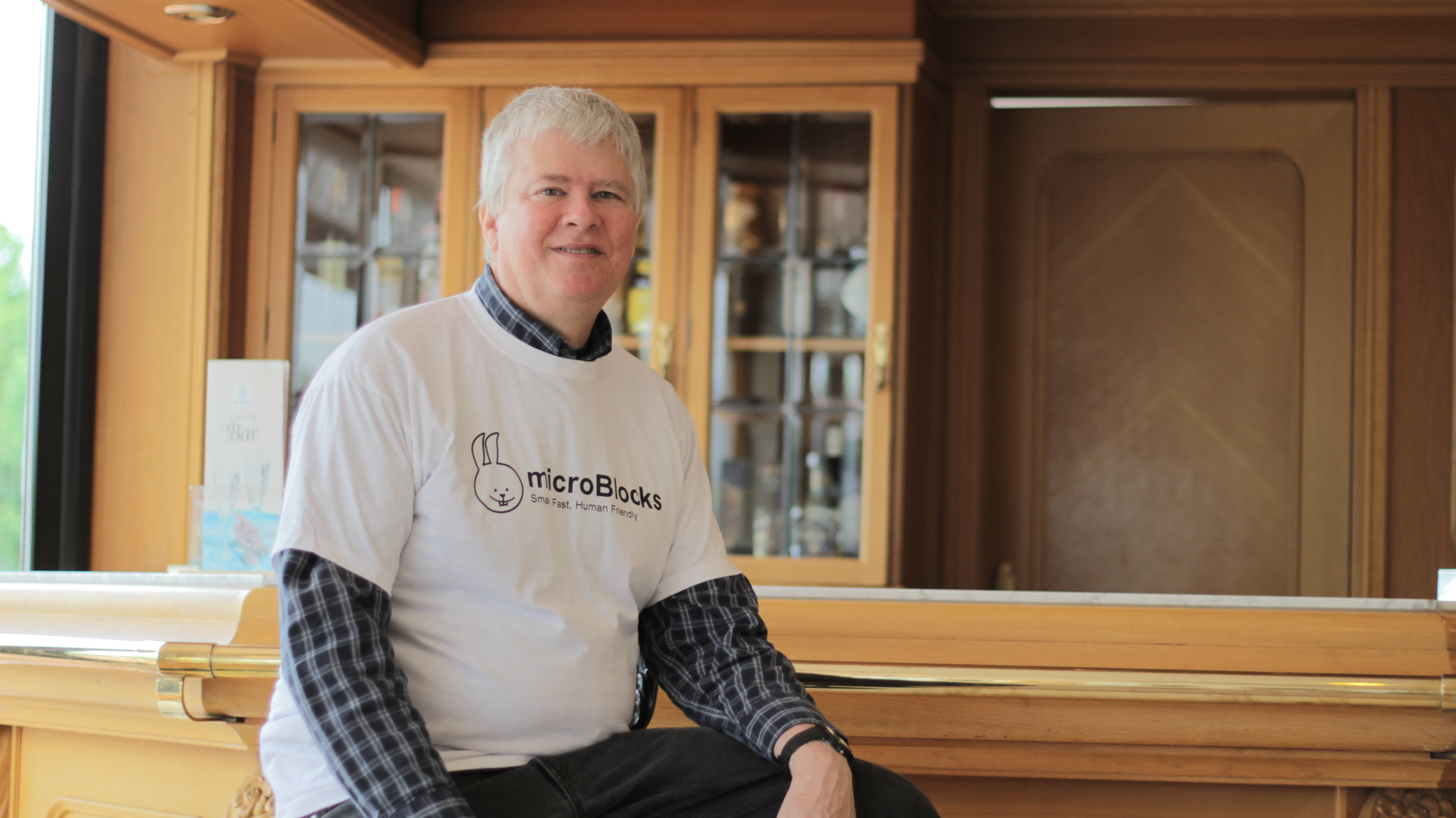Collective residencies / ROBOTICS II / Olot
JOHN MALONEY
From Tuesday, 30 April 2019 to Monday, 13 May 2019

Bio
John Maloney is best known for co-creating Scratch, a blocks programming language for beginners used by 39 million children around the world. Scratch grew out of Squeak and Etoys, which John helped create while working for Dr. Alan Kay at Apple and Disney. Before that, John worked on Self, a little-known programming language that was the inspiration for Javascript.
John enjoys working with musicians, artists, and designers. He spent a year in Roger Danneberg’s group at CMU, working with musicians to create tools for musical performance and accompaniment. Later, at Walt Disney Imagineering, John worked with artists and designers to create and test a number of installations for Disney theme parks.
MicroBlocks (http://microblocks.fun), John’s current project, aims to make programming physical devices like the BBC micro:bit as easy as programming in Scratch.
John enjoys playing the dulcian, the Renaissance ancestor of the bassoon.
Project
MicroBlocks debuted at the Robolot conference last year. Since then, it has been used by hundreds of children in Catalonia and around the world. Educators are often amazed at how quickly children became confident and proficient using MicroBlocks.
However, MicroBlocks is far from finished. It can be made easier to use, easier to deploy, and more versatile. The Faber Residency will allow the team to work together on specific projects, such as Internet of Things support. More important, it will allow us to develop a shared vision for getting MicroBlocks out to a larger audience around the world.
Time + Colleagues = Inspiration
Creative endeavors require deep thought. Unfortunately, for most of us quality thinking time is rare. We are often forced to do our thinking while doing other things such as commuting, exercising, or taking showers. In May, the Faber Residency gave me the tremendous gift of quality thinking time — and plenty of it. I arrived in Olot before the rest of my team and for several days I was free to think about the MicroBlocks project from many angles, levels of detail, and time scales. Some of my thinking time was spent in front of my computer screen, some was spent roaming the beautiful walking trails that begin just a few steps from the Hotel Riu Fluvià.
It was bliss!
Few creative people are islands. Most of us need the ideas and stimulation of others or our ideas dry up. If quality thinking time is the soil in which ideas germinate, conversation with smart colleagues is the sunlight that makes them grow. Here again, the Faber Residency provided invaluable gifts.
First, the Faber Residency gathered most of the MicroBlocks team together in one place. The team has members in Spain, Germany, and the United States and we span 9 time zones. While we’re great at remote collaboration, being in the same place allowed us to work faster, dig into hard problems together, and discuss things in greater depth than we can when working remotely. Most important, being together helped us develop a shared vision for how the MicroBlocks, Snap!, and the Mozilla IoT projects fit together. For example, the very first day we were together we discarded an earlier design for communication between Snap! and MicroBlocks and switched to one based on the Mozilla’s open Web of Things standard. The new design allows all three projects to interoperate smoothly. It has so many benefits that the design seems obvious in retrospect, yet I doubt we would have come up with it if we hadn’t been in the same place.
Second, the Faber Residency brought us together with a wonderful and inspiring group of educators from Catalonia and other parts of Spain including Miguel Antonio Peña from Madrid; Joan Guillén, Josep Ferrándiz and others from the Barcelona department of education; Nina Coll, Cristina Barriuso, Víctor Casado, and Jose García from the Citilab Barcelona Edutec group; and, of course, Toni Moreno, who has been promoting robotics and STEAM education in Olot for over 20 years. The seeds planted by spending a week with this group of amazing people have already taken root. On my way back to the airport, I visited the Edutec group at Citilab and we’ve started an exciting project to share classroom activity ideas and documentation. I’ve also started working more closely and directly with the Edutec team on MicroBlocks support for the new ED1 board.
The harvest from this experience goes far beyond the people who shared the week together in Olot. All of us are involved in education, so the ideas, inspirations, and collaborations that sprang up during our time together will ripple out to all the children (and adults) that we reach.
Thank you, Faber Residency, for all these wonderful gifts!
